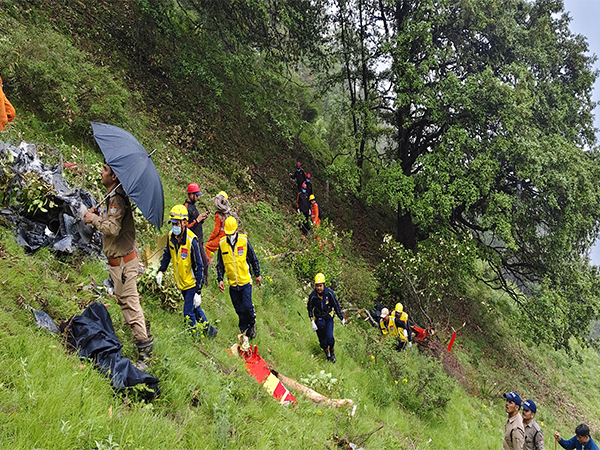
Air India plane crash: 24x7 DNA sampling-to-matching process underway at FSL
Jun 15, 2025
Gandhinagar (Gujarat) [India], June 15 : The Forensic Science Laboratory (FSL) in Gujarat's Gandhinagar has been operating round the clock to identify victims of the Air India plane crash through DNA profiling and matching, according to a release from the Gujarat Chief Minister's Office (CMO).
Speaking to the media on Sunday, HP Sanghvi, the Director of FSL, provided detailed information regarding DNA profiling and matching in connection with the plane crash incident.
As per the release, the FSL director stated that the process, from sampling of the deceased passengers' family members to DNA matching, is being carried out continuously for 24 hours. Providing insights into the DNA profiling and matching process, he explained that there are primarily two methods of obtaining DNA samples.
One method involves collecting samples from fresh blood, which is not a complex process. The other method involves collecting samples from the remains of the deceased, which is more complex and requires greater precision. Samples collected from the remains are carefully cleaned to avoid external contamination, the release said.
He added that during the DNA isolation and extraction process, if the sample includes a bone, it is ground into a powder. If the sample includes a tooth, it is broken into small pieces and then powdered. The powdered sample is then subjected to a precise temperature in a special machine to isolate the DNA, it said.
The quantity and quality of this isolated DNA is then checked using an RT-PCR machine. If the DNA meets the required standards, multiple copies are prepared. Both strains of the DNA are separated, and the strains are then run through a sequencer machine to obtain the DNA profile. This entire process is highly complex and time-consuming, the release said.
He mentioned that even after this entire process, if a sufficient number of DNA alleles are not obtained, the entire procedure is repeated. The obtained DNA alleles are then compared with the DNA alleles of the deceased's family members. Only when 23 DNA alleles match, the identity of the deceased and the relative is confirmed. In cases involving a father-son relationship, Y chromosome testing is conducted for confirmation, it said.
He emphasised that the entire process is both complex and time-intensive. Through meticulous and highly accurate DNA profiling and matching by FSL, the identities of most of the deceased have been successfully established with their family members within a very short timeframe, it added.






















